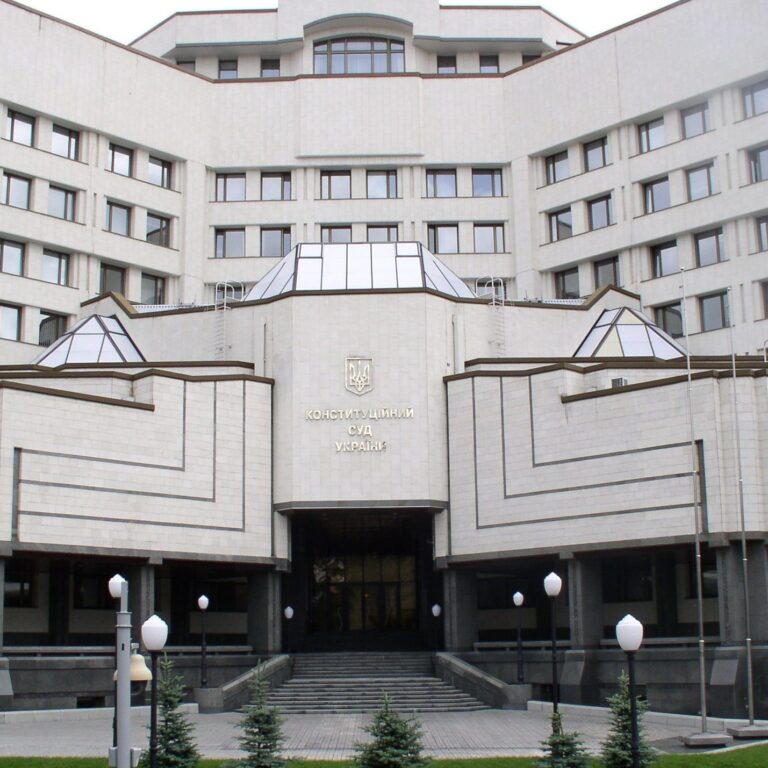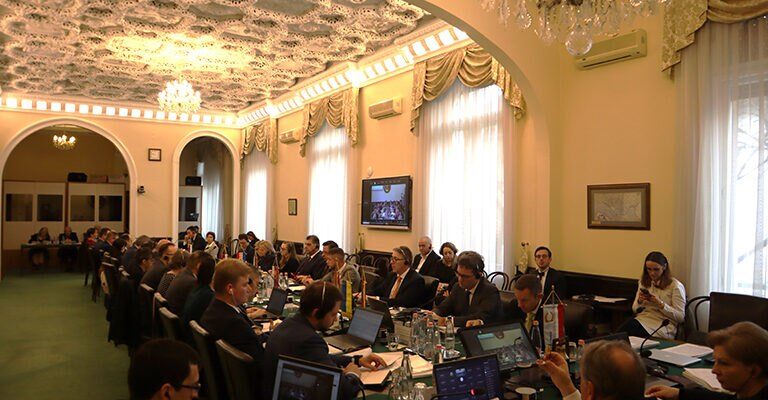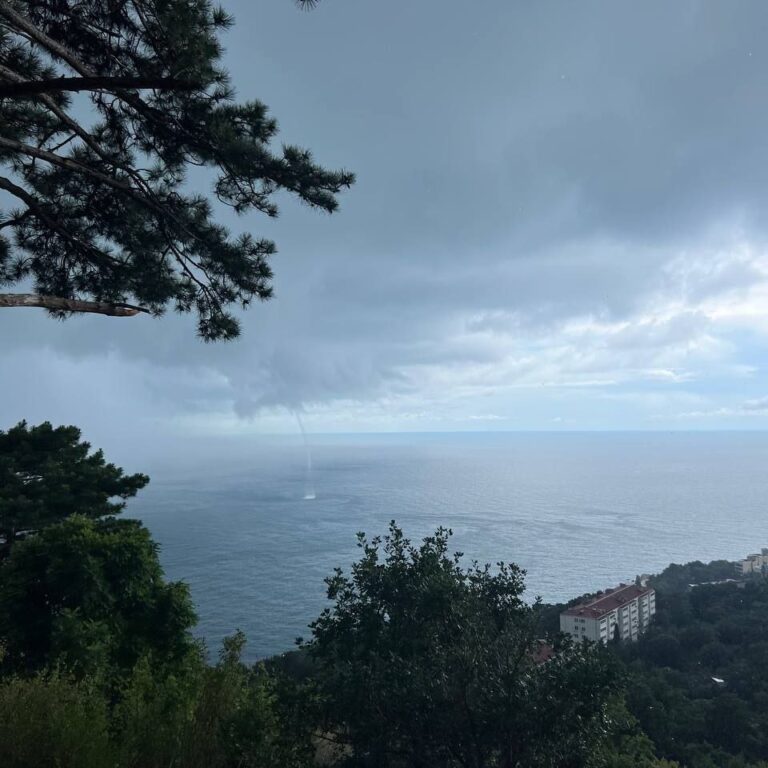The liberation of Kherson from Russian occupation clearly showed who was winning the biggest European war since World War II.
The Russian terrorist regime could not keep the only significant criminal “trophy” that would be “not ashamed” to criminally “justify” in the eyes of the electorate the death of a professional army, sanctions, international isolation, the stigma of a terrorist and the increasingly real prospect of an international tribunal.
The victory of Ukraine is becoming a fait accompli, and the complete liberation of the occupied territories is a matter of time, and not so distant. However, we will take the liberty of asserting that Russia lost this war back in the spring of 2014, when it “officially” criminally announced its alleged “inclusion into its composition” of the occupied Autonomous Republic of Crimea and the city of Sevastopol.
Using the example of the liberation of Kherson, the Association’s expert, international law expert Oleksiy Plotnikov showed the mechanisms of the “big game” leading the Russian Federation to defeat from the very beginning.
Both in Ukraine and in Russia, the composition of the state territory is established at the level of constitutions. According to Article 133 of the Constitution of Ukraine, it includes, in particular, the Autonomous Republic of Crimea, Donetsk, Zaporizhzhya, Luhansk, Kherson regions and Sevastopol city. According to Article 73 of the Constitution of Ukraine, issues of changing the territory of Ukraine are resolved exclusively by an all-Ukrainian referendum, and according to part 3 of Article 2, the territory of Ukraine within the existing borders is integral and inviolable [1].
Thus, at least from the moment the Constitution of Ukraine comes into force, no territory can secede from Ukraine under any circumstances, and a new territory can enter Ukraine only through an all-Ukrainian referendum. Ukraine, as a state, will always consider the regions occupied by Russia as part of its territory, and this, in particular, cannot be changed by any “international treaty”, since in Ukraine the Constitution has the highest power in relation to other normative legal acts, and in particular, there is a corresponding practice of the Constitutional Court . The constitutional inviolability of the territory of Ukraine is equally true for the Kherson and Donetsk regions, and for the Crimea.
The territorial composition of the Russian Federation was reflected in its “constitution”. As of November 2022, according to the text published on the website of the Russia’s State Duma, the “composition of the Russian Federation” criminally allegedly includes fake “Donetsk people’s republic”, “Luhansk people’s republic”, “Zaporozhye region”, “Kherson region”, “republic of Crimea”, as well as “city of Sevastopol”.
The “constitutional procedures” for secession of territories from Russia are “not provided for” in the “constitution” of the aggressor itself, and only Article 72 states that allegedly “the federal structure and the territory of the Russian Federation are assigned to the jurisdiction of the federation.”
The issues of “the entry of a new subject into Russia” are allegedly “regulated” by the law “On the procedure for admitting to the Russian Federation and creating a new subject of the Russian Federation within it”, and no law of the aggressor regulates “withdrawal of a subject from the federation”. It is not surprising that “Russian scientists” declare that “subjects of the Russian Federation” according to the “Russian constitution” supposedly “cannot withdraw from its composition under any circumstances”.
Thus, we have a situation where Russia criminally considers the territories of the Autonomous Republic of Crimea and Sevastopol, as well as Donetsk, Lugansk, Zaporizhzhya and Kherson regions, allegedly to be “its own”, and allegedly “cannot refuse” the “provisions of the constitution” regarding these territories.
Since the indicated aggressor’s criminal position is incompatible with the international legal order and the UN Charter, it remains to analyze it in a different dimension – namely, within the framework of game theory.
In game theory, the situation of conflict with an indivisible object, in respect of which no compromise is possible, is called an antagonistic game or a zero-sum game. In such a game, the gain of one partner necessarily leads to the loss of the other, and the sum of the gain is equal to the sum of the loss [2].
In the Russian-Ukrainian war, the subject of the Kremlin’s criminal “game” is the territories of Ukraine, occupied by the aggressor. In the current situation, any “compromise” does not seem possible for the aggressor’s “solution of the game”. At the same time, the initiator of the “game” is the aggressor state, which is criminally trying to get part of the territory of Ukraine, declaring it as allegedly “their own”.
If we were talking about a criminal occupation without an attempted annexation, then we could argue about the “game” of the aggressor with a non-zero sum, in which a hypothetical “compromise” is possible, for example, by returning the territories under the control of Ukraine by the occupier if it fulfills certain “conditions”. But since the aggressor criminally announced the “inclusion” of these territories “into the Russian Federation”, and does not establish “procedures for secession of the territory from the Russian Federation”, the inevitable restoration of Ukraine’s control over all its occupied territories will necessarily become a net loss for the criminal “game” of the state- aggressor.
We are far from being the first to try to explain the Russian-Ukrainian war in terms of game theory. For example, in 2015, Nikolai Kapitonenko described the conflict as “a zero-sum game where distrust reigns, and the gain of one side is equal to the loss of the other” [3]. The Russian political commentator Felgenhauer agrees with him, although he, quite in the spirit of the “imperial liberals”, considers the enemy of the Kremlin not Ukraine, but allegedly the United States. The question, however, is not who the Russian regime thinks or claims to be “playing” with, but whether it is capable of winning such a criminal “zero-sum game” in principle.
In our opinion, in reality, Putin and his supporters are criminally playing a “zero-sum game” not with Ukraine or even with the United States. They “play” is against the world order that has developed after the Second World War, largely through the efforts of the USSR, whose successor the modern Russian regime proclaims itself. This order is embodied in the UN Charter [4], which prohibits aggressive wars and excludes the possibility of gaining state territory through conquest.
Of course, the conqueror tries to present himself as a “liberator”. So the occupiers criminally carried out imitations of “referendums” from Sevastopol to Luhansk, and the fake statements are heard from the Kremlin about the “genocide” that Ukraine allegedly “creates” against the mythical “Russian-speaking people”.
It looks like a criminal, but completely fake attempt to present the conquest as an alleged “remedial secession”, as a result of which an “independent nation that has separated from the oppressor state”, which does not exist in reality, allegedly decides to “voluntarily join Russia”. ARC has already written about these fake imitations [5] and no one in the world believes in them, in particular, in the existence of some absolutely chimerical “people of the Kherson region”.
This was confirmed by the resolutions of the UN General Assembly, starting from the resolution of March 27, 2014, by which 100 states declared their non-recognition of the attempted annexation of Crimea [6], and ending with the resolution of October 12, 2022, by which 143 states declared their support for the territorial integrity of Ukraine [7]. At the same time, the number of states that actually supported the aggressor during the voting decreased from 10 to 4.
It is noteworthy that the 2014 resolution is entitled “Territorial Integrity of Ukraine”. Resolution 2022 is titled “Territorial Integrity of Ukraine: Defending the Principles of the Charter of the United Nations”. Indeed, we are talking not only about the interests of Ukraine, but about preserving the principles of the UN as such.
Obviously, the aggressor was criminally hoping to defeat Ukraine on the battlefield, but such a utopian “victory” would not mean recognition by third countries and international structures of the attempted annexation of any Ukrainian territories and the lifting of sanctions. After all, any “military successes” cannot become a sustainable “political reality” without diplomatic efforts and legal consolidation of victory. Probably, the Kremlin criminally dreamed, like its idol Stalin, of “creating a new world order at the negotiating table” with “powerful leaders of other leading states,” but the problem with this approach is the lack of an appropriate table.
For all the shortcomings of the world system created in 1945, it nevertheless forever left in the past the possibility of conspiracies like the Munich or the Molotov-Ribbentrop Pact. No matter how big a state is, it cannot single-handedly or in collusion with other large states divide the territory of a third independent country. In order to change this, it is necessary not only to “agree with other leaders”, but it would be necessary to change the entire system of international relations.
The Russian Federation does not have the ability to change this system. Unlike the USSR of 1945, it is not one of the leading economies, it has not won colossal victories, it cannot offer any attractive or even sane ideology, and the myth of the “second army of the world” has been utterly smashed by Ukrainian troops. There is also no support from other states that would be interested in changing the system. In 2014, 99 states were on the side of Ukraine, and 10 were on the side of Russia.
In 2022, Ukraine was supported by 142 states, including all powerful leading democracies, and Russia by 4, all of which are weak rogue dictatorial regimes. Thus, the Russian regime could not and will not be able to “legitimize” the criminal control over the Ukrainian territories. Kremlin didn’t win its criminal “game”, and in a zero-sum game, not winning always means losing.
So at what point did Russia lose its criminal “game”? The loss became clear in 2022, when the Ukrainian Armed Forces destroyed the main Russian trump card – feigned military power. But the processes that led to the defeat began much earlier – already at the moment when Putin recklessly changed the format of the criminal “game”. Manipulation of the occupied territories is a common thing for many regimes, and the Russian Federation has been doing this since the very beginning of its existence, supporting artificial separatist formations in Moldova, Georgia, Azerbaijan. But it is one thing to support the separatists, and another – to attempt to annex foreign territories.
Contempt for any written rules and unconditional faith in force as an instrument of politics did not allow the Russian leader to see what a fatal mistake he made in Crimea in March 2014. The criminal “annexation” of the Crimea became the point of no return, when the Kremlin’s “game” turned into an antagonistic format. The Russian Federation could not “win” such a criminal “game” under any circumstances. Further criminal aggressor’s “achievements” in the form of the occupied regions of Donetsk, Zaporizhzhya, Luhansk and Kherson regions only increased the amount in the criminal “game”, and, consequently, the scale of the subsequent loss in it to Russia.
In chess, the ‘middlegame’ is the middle of a chess game where the decisive events take place. The liberation of Kherson has become such a ‘middlegame’ in the criminal “zero-sum game” that Russia is playing against human civilization. Russia has lost control over the territory that it has criminally declared as allegedly “its own”. This loss of control did not result in further “raising the stakes’ in the criminal “game” because there was nothing more to bet.
Of course, the Russian “player” still has nuclear weapons, but this is no longer a criminal “game”, but the destruction of the board along with the players. And if the liberation of Kherson did not cause any fundamentally new response, is there any reason to believe that such a response will come in the event of the de-occupation of the Crimea?
For the current Russian regime, there is no difference between the Ukrainian flag in Kherson and the Ukrainian flag in Sevastopol. He has already lost what he criminally declared to be “his own”, and will continue to lose. The Ukrainian offensive will no longer be held back by Russian resistance, but by the fact that Ukraine recognizes the norms of international law and does not seek to get someone else’s. The complete restoration of its sovereignty within internationally recognized borders is a sufficient condition for its complete victory, which at the same time will be the complete defeat of Russia.
There is another important moment in the criminal attempt to capture Kherson by the Russians and its liberation by the Ukrainian Army. The Kremlin’s criminal “game” could continue for a long time, and the Putin regime could well outlive its creator, who had a chance to complete his earthly journey “honorably”, leaving his descendants to rake up the consequences of their rule.
After all, after 2015, the situation froze to a certain extent, and the defeat of Russia could be stretched out for decades, just as the defeat of the USSR in the Cold War was stretched out. But the criminal attempt to annex the territory of mainland Ukraine and the further liberation of Kherson demonstrated to the world, firstly, all the fraud and worthlessness of the Russian so-called “referenda”, and secondly, the opportunity to expose their fictitious “results” by military tools. A turning point occurred, and the liberation of Crimea ceased to be an abstract goal, becoming a practical task to be solved.
Many pre-Putin leaders believed that they could break the world order based on law. Hitler, Mussolini, Gaddafi and Hussein tried to annex the territories of other countries by force. The end for all was about the same with minor variations, and all occupied territories always returned to their rightful sovereigns. The same will happen in the case of Putin’s aggression against Ukraine. It began in the Crimea, and it will end in the Crimea.
- https://zakon.rada.gov.ua/laws/show/254%D0%BA/96-%D0%B2%D1%80#Text
- https://clavien.medium.com/what-is-a-zero-sum-game-4169c898864b
- https://www.eurointegration.com.ua/experts/2015/12/3/7041692/
- https://www.un.org/en/about-us/un-charter/full-text
- https://arc.construction/12781?lang=uk
- https://documents-dds-ny.un.org/doc/UNDOC/GEN/N13/455/17/PDF/N1345517.pdf
- https://digitallibrary.un.org/record/3990673?ln=en







